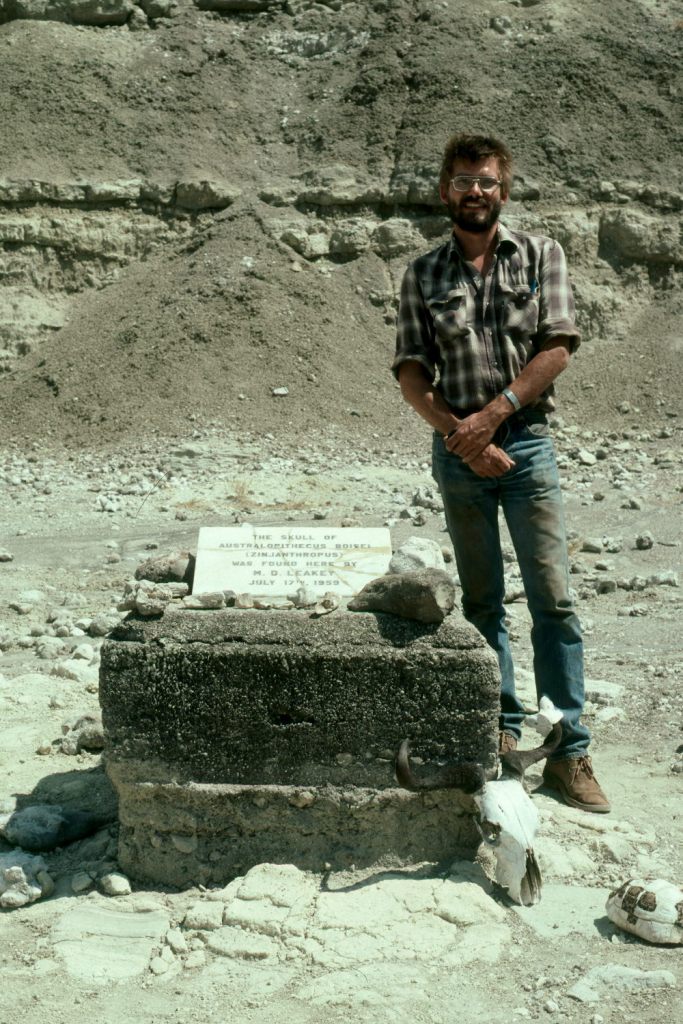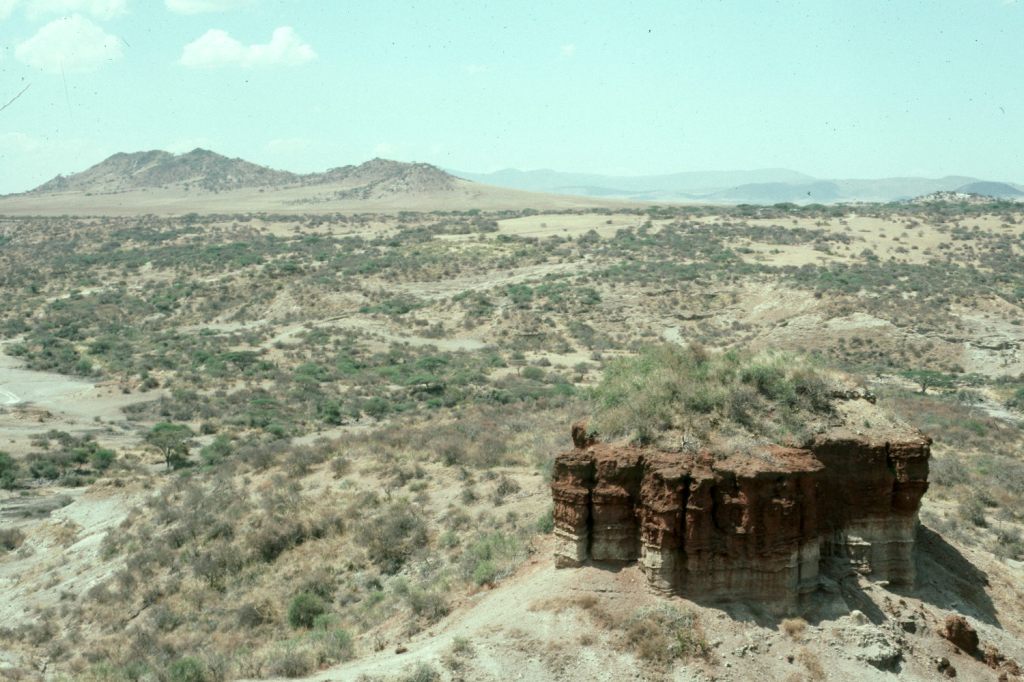(The following is an amalgam of three previous posts: Apologetics Archaeology?, Apologetics Archaeology Round 2, and Further Thoughts on Cline and “Biblical” Archaeology. All three run along the same theme of questioning the integrity of biblical archaeology research in the Mideast. I’ve pulled this together in response to a request for submissions for Past Discussed Quarterly. The actual article begins below the fold).

I have been reading with intense interest the discussions on Finkelstein’s Low Chronology taking place at Stephen Cook’s blog, and at Abnormal Interests. Briefly, for readers unfamiliar with the “Low Chronology” debate, archaeologist Israel Finkelstein has suggested, among other things, that strata at many archaeological sites in the Middle East originally dated to the 10th century BCE should be “lowered” to the 9th century BCE. This may seem an innocuous adjustment in dates, but in fact it wreaks absolute havoc with the idea that the bible has any but the most minimal historical validity. It pretty much removes the epoch of David and Solomon from historical consideration, at least as it is represented in the biblical texts. As such it is one of the issues at the heart of the minimalist/maximalist debate in bibical…ah, excuse me, Syro-Palestinian archaeology.
I have read Finkelstein’s book and found his reconstruction of the traditional biblical chronology rather interesting. There is clear disagreement on the archaeological validity of the “Low Chronology” and I don’t claim to have sufficient knowledge to comment, although I find myself reading more on the subject. However, I was struck more with Finkelstein’s focus on explaining the archaeology of the region in the context of issues more familiar to me as a research archaeologist: population increase, adaptation, migration and population displacement, environmental context, etc. Finkelstein is an archaeologist whom I expect would feel comfortable in the realm of hunter-gatherer archaeology. I think he ultimately gets what archaeology is all about: understanding past human behavior. More to the point, I think he does what a good archaeologist should: he puts the archaeology ahead of the history as the primary source of explanatory power. And I get the feeling that his critics are ultimately more concerned with the methodological and theoretical approach he uses, than with the archaeological validation of the Low Chronology, per se.
In this respect, I believe I am coming to a different appreciation of the “maximalist/minimalist” debate in Syro-Palestinian archaeology. Probably naively, I had considered this issue solely within the context of interpreting the archaeology in terms of the bible. If you interpret the archaeology in parsimony with the bible, you’re a maximalist; if you interpret the archaeology at variance with the bible, you’re a minimalist. But in either case, my assumption had been that the archaeology was the same and it is only the differential interpretive weight placed upon one or more archaeological components that leads to the split between minimalist and maximalist. Now I’m not so sure. What Finkelstein does differently from his critics, is to approach archaeological interpretation of the region on basis of, well…the archaeology. His hypothesis testing is based upon questions of understanding past human behavior in the context of the material culture left behind by extinct human populations, without the theoretical crutch of assuming historic texts have already captured those behaviors and events. Textual evidence is at best a secondary source of information, another interpretive tool in the archaeologist’s box, if you will. It may come in handy some time down the road…after the chronology has been worked out…after the subsistence and settlement patterns have been worked out…after some questions of culture change have been addressed. Now in actual practice we archaeologists tend to run all those together…no one is going to wait for the perfect chronology before developing explanations of culture change; what I am referring to is how you approach the archaeological record from the very beginning.
I have always been curious about the criticism leveled at Finkelstein that he “selectively” uses biblical text to support his contentions. But this is exactly the level of interpretive power expected by historical texts – the written record of the human past is plagued with error, perspective, limited vantage, experience (or lack thereof), political and economic motivation, and outright deception. The range of interpretive “help” provided by historical texts will range from absolutely zero to some textual fragments that may be very useful; with a whole lot of text of dubious quality either way. I would expect only “selected” text to be of any value in interpreting the archaeological record. In fact, I would argue that the archaeological record provides greater benefit at the interpretation of historical text than the other way around. This is ultimately the crux of biblical minimalism: Finkelstein is using the archaeology to interpret biblical texts; not the biblical texts to interpret the archaeology.
I think this is the appropriate way to approach archaeological research in regions and time periods where historical documentation is also available. If my understanding of the minimalist/maximalist debate is even remotely correct in this regard, I must obviously count myself among the minimalists. And this is not a perspective I would consider limited to the archaeology in the Land of the Bible. Interestingly, we have a similar issue here in California with the use of ethnographies. Ethnographic sources (historical accounts of Native American lifeways) are considered by some archaeologists in the region to be the focal context for interpreting the archaeological record. I have even heard the Smithsonian’s Volume 8 (California) of the North American Indian series referred to as the “Bible” of archaeological interpretation (with devotion among some archaeologists approaching that of Middle Eastern biblical texts!). I would argue that these “historical” ethnographic texts suffer from the same problems I listed above, are of limited value in archaeological interpretation, and that much of northern Californian archaeology remains provincial because of an uncritical allegiance to this “tyranny of the ethnographic record”. But that’s a post for another time.
While I certainly do not claim a sufficient knowledge of the archaeological material in question (and in reading additional material, I have my own doubts regarding the validity of the Low Chronology), I am nonetheless suspicious of Finkelstein’s critics, largely because most of them seem to give biblical texts far greater interpretive weight than is justified, at least relative to the actual archaeology. This is not to say that I think all of them are raving biblical literalists, chomping at the bit to use archaeology to “prove the bible”. Some simply see greater interpretive value in historical texts (be they biblical or any other) and reflect this perspective in their archaeological work. I’ve got no issue with this (other than it is not a methodological approach I would favor – I think it puts the “interpretive” cart before the “data” horse) – for those conducting responsible archaeology, it is simply another approach that ultimately can be tested with additional archaeological data.
However, I have a growing concern with the ethical framework in which some Syro-Palestinian archaeological projects are being conducted, and this has to do with many of Finkelstein’s critics for whom biblical texts are not simply invoked as a valid interpretive tool, but are viewed a priori as historically accurate. I think this is a serious integrity issue for the future of archaeological research in the region. Unfortunately, I remain of the belief that 1) this is a significant problem adversely affecting the public perception of Syro-Palestinian archaeology; 2) it is a problem unique to Syro-Palestinian archaeology (as opposed to archaeological research conducted elsewhere) and is largely the result of this area’s historic ties to major religious texts; 3) professionals in the field of Syro-Palestinian archaeology are at least partially culpable; and 4) it is an issue largely ignored by professionals in the field.
This is a subject I have discussed before, specifically with regard to creationist Carl Baugh’s visit to Lassen County and his false claim of professional credentials in the field. Individuals with a theological agenda, like Baugh, are using their experiences working on archaeological sites in the Middle East to legitimize their faux credentials in archaeology. Carl Baugh is not as famous as Bob Cornuke but he gives hundreds of lectures each year and reaches a large audience. And there are many others who do the same. These individuals pose as much of a threat to the integrity of archaeology as Cornuke and Jacobovici.
This would not be an issue were professionals in Syro-Palestinian archaeology taking an active role in distancing themselves professionally from such pseudo-archaeologists as Baugh and others. But such distancing does not seem to be occurring. One gets the distinct feeling that many Syro-Palestinian archaeologists are comfortable with fundamentalist Christians misrepresenting archaeological research to further the populist notion here in the U.S. that “archaeology proves the bible”. Eric Cline is certainly an exception in this regard, but I wonder if even he understands the extent to which faux archaeology being presented at the local level. My local paper editorial corrections to the contrary, many people in Lassen County are still under the impression that the Israeli Antiquity Authority recognizes Carl Baugh as a legitimate archaeologist, and that he (not Ronny Reich) directed excavations at the Pool of Siloam.
As if this were not enough, recent excavations at the site of Gezer remind me of a major concern I have with the integrity of excavations as they are currently being conducted in the Mideast. These excavations are currently being directed by Steve Ortiz of Southwestern Baptist Theological Seminary and a “… consortium members that include Southwestern, Midwestern Seminary, Lancaster Bible College, the Marian Eakins Archaeological Museum, Lycoming College and Grace Seminary“. Read articles on Ortiz and you see things like “committed evangelical”, “God has called me to do archaeology”, and “the solution to doubts about the bible’s authenticity is to do your own archaeological work”. The Gezer excavations are being led by someone whose sole purpose at doing archaeological work is to “affirm bible history”, leading me to have serious reservations about the integrity of the archaeological work being conducted there. I am particularly distressed in hearing discussions of Ortiz’s work under the title of “Archaeology As Apologetics“. This is a completely asinine description of the real goals of archaeological research – and it completely devastates any authority archaeology may have to tell us about the past. How much evidence at Gezer that doesn’t confirm Ortiz’s preconceived notions of biblical history will see the light of day?
As noted, I have frequently written on my skepticism regarding the ethical integrity of archaeological excavations conducted in the context of so-called “biblical” archaeology. At one point I was asked whether I had consulted any Israeli Antiquities Authority (IAA) staff in making my comments about the Gezer excavations. Let me tell you a little story about my experiences with the IAA and other Syro-Palestinian archaeologists. When several residents from my home town here in Susanville accompanied Carl Baugh and members from the Creation Evidence Museum to excavate at the Pool of Siloam in 2004, the local paper practically wet itself over the opportunity to extol the virtues of Baugh as an archaeologist who was “proving the Bible correct” by his important archaeological work in Jerusalem. But Baugh is not an archaeologist; he has no legitimate degree; he has never written a peer-reviewed article on any of his so-called “field research”; he has faked evidence and been accused of sloppy, if not incompetent, field methodology. However, the paper locally led the rest of us to believe that “Dr.” Baugh was actually directing the excavations at the Pool of Siloam (no mention was made of Dr. Ronnie Reich or Dr. Eli Shukron of the IAA, the actual directors of the Pool of Siloam excavations). The paper also went out of its way to indicate that the IAA “commissioned” Baugh’s group to work at the site. When I questioned this in the paper, I was told that the IAA’s Eli Shukron not only invited Baugh to come excavate, but also “blessed” the group for its participation. I did email an archaeologist in Jerusalem asking for further information, who forwarded my email to an IAA archaeologist (not Shukron). The short story is that although they were both helpful and provided some clarification, neither could confirm or deny the relationship between Baugh and the IAA. My email inquiries to Ronnie Reich on the matter went unanswered. In 2005 I even wrote Hershel Shanks at Biblical Archaeology Review:
Dear Dr. Shanks,The recent Biblical Archaeology Review on the Siloam Pool was fascinating. Dr. Ronnie Reich and Dr. Eli Shukron certainly have a major discovery on their hands. However, why was credit for the excavation at the Pool not shared with Dr. Carl Baugh and his team from the Creation Evidences Museum in Glen Rose, Texas? According to articles in my local newspaper and recent radio broadcasts by the Southwest Radio Church Ministries in Bethany, Oklahoma Baugh and his team were invited to participate in the excavations and partner with the Israel Antiquities Authority to excavate at the Pool in November 2004 and on some occasions since. Two implications from these reports are clear: 1. that Baugh’s “team” comprises himself and others as professional archaeologists with the credentials necessary to excavate important archaeological sites, and 2. that the Israel Antiquities Authority not only invited, but officially sanctioned them as such.
“Dr.” Carl Baugh has no professional credibility as an archaeologist specifically, nor as a scientist in general. His Ph.D. is not from an accredited university, nor is it quantitative, nor is it in archaeology. He and his museum organization are known to have falsified data, botched excavation of legitimate paleontological resources and misrepresented their credentials. Further, neither he nor any person in his group have published a single research report, article or even short communiqué discussing methods and results, let alone submitting anything for peer-review. As far as I can tell, neither does any member of his group possess any formal training, experience or degrees in archaeology. Yet the local conservative Christian communities here are awe-struck by the idea that their members are granted special access to Holy Land sites, that they are invited to participate in archaeological excavations and scientific research, and more importantly, that they share the same professional stage (and hence earn the same professional respect) with experienced and published archaeologists.
Is the Israeli Antiquities Authority in the habit of legitimizing individuals with no valid archaeological credentials as professional archaeologists? Perhaps more to the point, are they aware this is occurring?…
…That they participated in these excavations is not doubted. However, I suspect that Baugh and others functioned as volunteers rather than esteemed colleagues as they portray. I understand the important use of volunteers for archaeological excavations. We use them frequently for excavating archaeological sites on federal lands. The USDA Forest Service Passport In Time program is wildly successful and the volunteers provide a significant contribution. But I have never had a volunteer return to his or her home town and portray themselves as a co-director of the project!
I understand the emotional attachment people have with Biblical archaeology in particular. However, many of these American conservative Christian groups seem to be participating in order to gain a measure of professional authenticity that they then parade in front of home audiences. Baugh’s group is not the only one. This is a growing issue that needs to be addressed in some official venue. Nor are these simply sour grapes on the part of a Darwinian archaeologist concerned with the broader issues of whether evolution or the Bible is true. As a Forest Service Heritage Program Manager, I am tasked with the same mission as the IAA: to oversee the preservation of archaeological sites on public lands and to ensure professional research is undertaken, by legitimate archaeologists with valid credentials. I would no sooner grant a research permit to Baugh and the Creation Evidences Museum than to a group of kindergarten children. But how am I to respond to “But we were allowed to excavate in Israel, why can’t we do it here?”
I would appreciate your comments on this issue, particularly any additional light you might shed on Baugh’s relationship with the Pool of Siloam excavations.
Thanks for your time and consideration.
To which Shanks replied (indirectly, via a staff member’s email) something to the effect that he didn’t have time for my concerns. Neither the IAA nor any archaeologist directly associated with these issues has ever responded to my inquiries. Perhaps I’ve contacted the wrong people. Perhaps they are too busy to respond. That may be the case, but it does not put me in a position to offer too much “benefit of the doubt”. In the case of my inquiries regarding Baugh’s relationship with the IAA, there are only two conclusions I can draw:
One, Carl Baugh is being typically less than honest in describing the actual relationship between himself and members of the IAA – which is what I actually suspect. However, the very fact that groups like Baugh’s are using IAA connections to gain some kind of professional legitimacy (at least in the eyes of local communities back home) should be of serious concern for the IAA, particularly as it relates to their mission of insuring the integrity of archaeological research and protection of antiquities. They should publicly condemn groups that inappropriately claim their activities are sanctioned by the IAA. At minimum, the IAA should be actively educating the public worldwide that their excavations are directed by those with professional credentials and a professional concern for the integrity of archaeological research…
or…
Two, Carl Baugh is not exaggerating (or downright lying) and the IAA does actually recognize him as a professional archaeologist with professional credentials. If so, then as a professional archaeologist I have serious reservations about the integrity of the IAA and perhaps some of the others conducting archaeological research in that region.
Were this just an isolated case from a small town in northern California I could understand being ignored. But it is a growing issue. As a professional archaeologist I increasingly encounter people who go to the Middle East, participate in an excavation, then come home and wax eloquent on the nature of archeology, how archeology “proves” the bible, and sometimes how they themselves should be considered “archaeologists”. This is an issue I and others have to constantly confront…and correct. It is further an issue for which the IAA and Syro-Palestinian archaeologists need to take some responsibility. Dr. Ortiz is not Carl Baugh or Willie Dye, but their comments regarding the nature of archaeology cause me some concern…and they need to understand that the activities of Baugh and others who would falsely claim a profession in archaeology derived from their experiences in the Middle East, adversely affects their own research: I did not derive my concern for the integrity of archaeological work at Gezer in a vacuum.
At the time I was questioning Dr. Ortiz’s level of objectivity at the Gezer excavations, I was contacted by Dr. Sam Wolff, an archaeologist with the IAA and colleague of Dr. Ortiz at Gezer. I was mollified somewhat by Dr. Sam Wolff’s comments that the Gezer excavations are being conducted within the full neutrality of archaeological methods. I would also point out that he is the first member of the IAA to specifically address a concern and point-blank answer a question. I am grateful to him for that. However, in all honesty, and considering the totality of my experience with the issue thus far, I remain skeptical. I think it is a fair question to ask if religious conviction has a place in scientific research. Is it possible for Christian Syro-Palestinian archaeologists to maintain “methodological naturalism”, at a time when so many of their counterparts in the United States are demanding that scientists abandon that philosophical approach in favor of non-scientific alternatives sympathetic to existing religious expectations?
But there are further questions. To what extent are the results of “biblical” archaeology dictated by fundamentalist Christian funding sources? Is there an adverse effect on the integrity of “biblical” archaeology when so many of those who have a theological stake in the outcome are both participating in and funding the excavations? And where is the IAA in reprimanding those who misrepresent their experiences (and credentials) in archaeology elsewhere?






Leave a comment